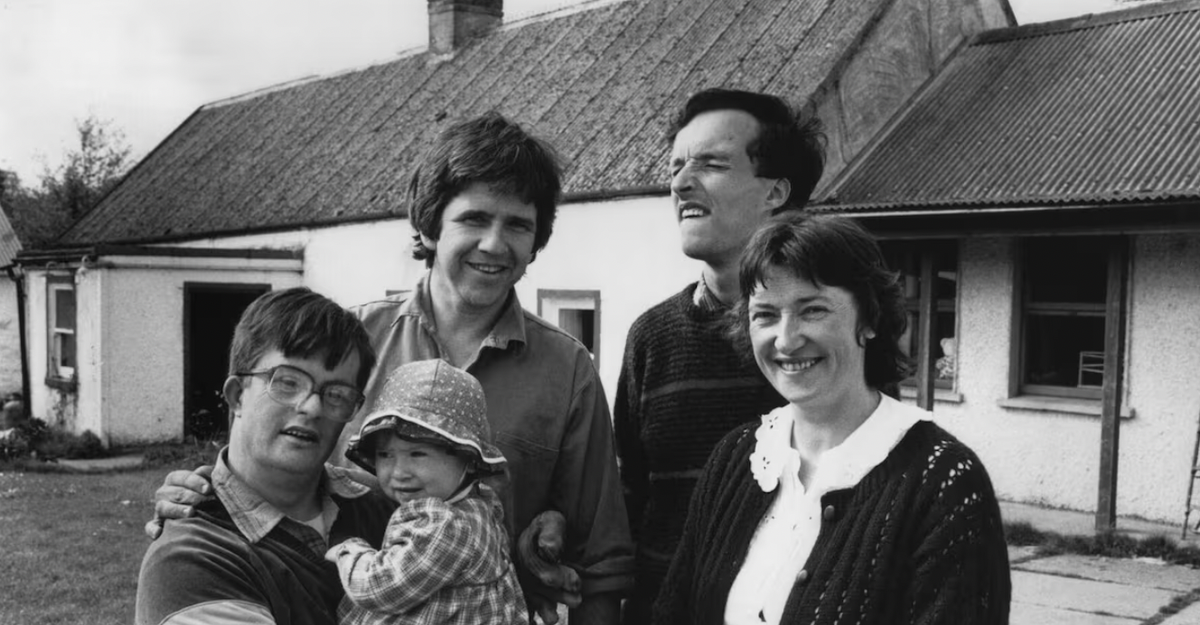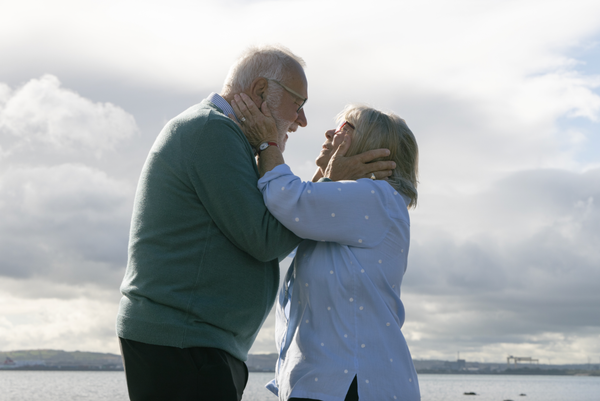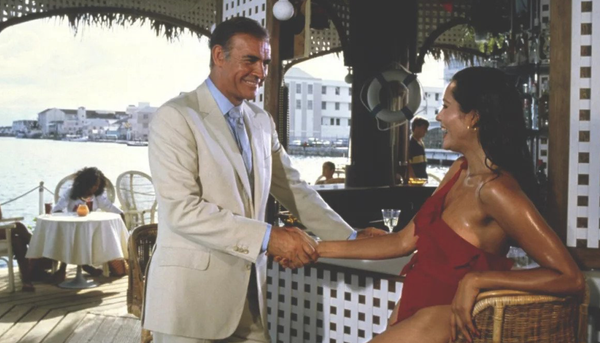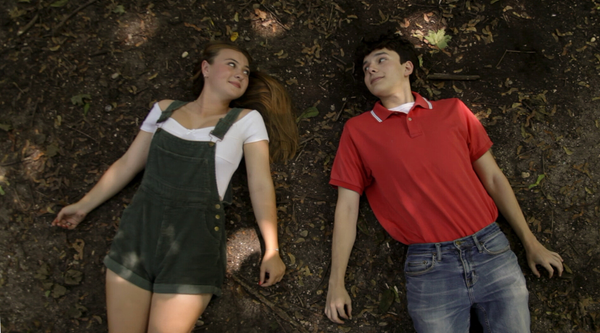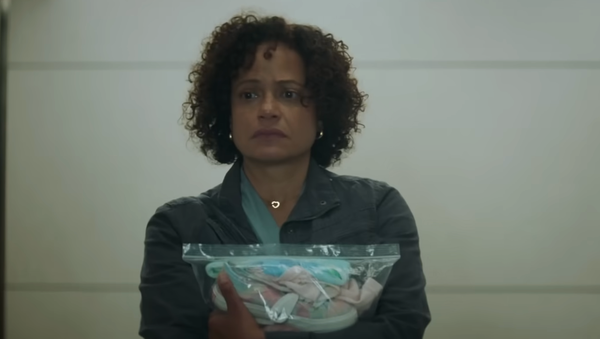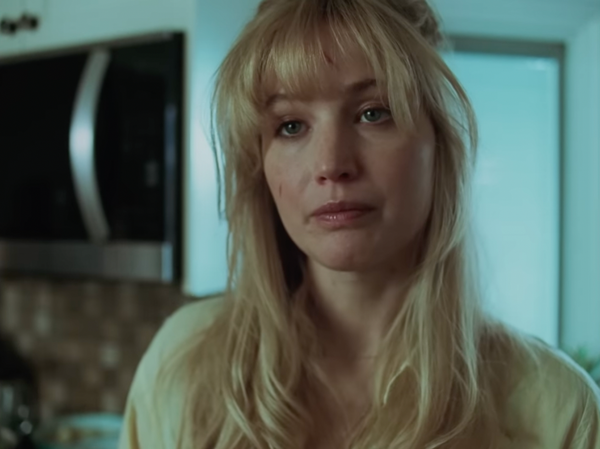Mutale Kampuni casts an eye on important subject matter in her review of documentary Born That Way.
Unfolding as a reflection on his life, the documentary charts the final year of Patrick Lydon, co-founder (with his wife Gladys) of the Camphill Community at Ballytobin, Callan, County Kilkenny, in 1979. Poignantly drawing from memories, photographic mementoes and archival material, this inspirational story of humility and love of community is woven. Director Éamon Little draws an impression of a man more concerned with service to others than recognition and accolades. Lydon and Gladys downplay their hard work, the pioneering spirit underpinning groundbreaking innovation and achievements.
Born on 12th July 1950 to an Irish family in Massachusetts (USA), Lydon was the youngest of six children. His formative years at home played a major role in what was later to become his life’s calling. When her husband (Patrick senior) was forced to retire from his work due to illness, his mother Alice took charge of the family fortunes, moving them to a small, subsistence farm during the first three years of Lydon’s life. Against that backdrop of a seemingly simple existence, Alice also advocated a principle of ‘high achieving intellectualism’ and education for her children. With no financial muscle behind them, they were enrolled into prestigious schools by way of attaining scholarships.
At age 16, Lydon was accepted on a full scholarship as a student of Exeter Academy in New Hampshire, where he was introduced to the work of Dostoevsky and The Brothers Karamazov. The wisdom he found in these writings was to serve him into the future as his ‘raison d’être’ in the Camphill Community. He moved on to Yale where he spent two years and was on course to follow a career in music (rock) journalism. Lydon availed of opportunities to report for the New York Times on rock and roll events by the Rolling Stones in Hyde Park and Woodstock.
Around the same time, he was becoming increasingly disillusioned with American culture and its politics of entrenched racism, value system, glorification of the military and industrialisation. Being conscripted into the Vietnam War was the deciding factor for leaving the country. He deferred being drafted, to be called up once his studies ended, and left to study at Trinity College, Dublin. This stay in Ireland was to encompass all of fifty years.
In 1972 Lydon came upon the Camphill Community in Duffcarrig, Co Wexford, which was just getting off the ground, and the first in the country. Lydon said he found his life's mission here and states, ‘There, a door opened, and I went through it.’ Due importance is given to the origins of the Camphill Movement in 1940 in Aberdeen, Scotland, which was founded by a group of war refugees. Under the leadership of Dr Karl König and inspired by the teachings of Rudolf Steiner, with particular emphasis on the potential, education, integration and spiritual integrity of all, regardless of physical or intellectual ability, they established the community to provide a ‘healing environment’ and develop a new way of life for children with special needs.
The documentary explains how the community's model involves co-workers and individuals with disabilities living and working together in a family-like setting, emphasising mutual respect and a holistic approach to care. Lydon fully embraced these values and highlights in the documentary the denial of the human rights of children with exceptional needs. He states, ‘Their issues are not health issues, they are who they are.’
In 1976 Lydon went on a work placement to Camphill Newton Dee, Aberdeen and met Gladys Kinghorn. They were married soon after, and in 1978 they responded to a request from parents seeking a new community for autistic children in Ireland. This was the beginning of the Camphill Community in Callan, Kilkenny and lifelong mission and passion of Patrick and Gladys.
Gladys explains life sharing, based in largely self-sustaining organic farms and gardens, and says, ‘...Nobody got paid. People coming to live here found their lives enriched. “Cared for”, “carers” and “service provision” were alien concepts. All were equal citizens, each contributing according to ability.’
Little’s personal experience and friendship with the family communicates the connection and special position afforded to those who came to live and work at the Camphill Community. He describes how he saw Patrick ‘...as a sort of social artist – human relations were his material, making surprising connections his modus operandi. Far from po-faced or holier-than-thou, he got his kicks from what he did.’
The end of the story provides particularly heart-warming moments as Lydon is enfolded in the warm embrace of his family, extending beyond those with blood ties, to the widest community of kindred spirits and friends from near and far.
Born That Way screens at the Irish Film Institute, Dublin and Mayo Movie World, Castlebar from Friday 14th November 2025.

